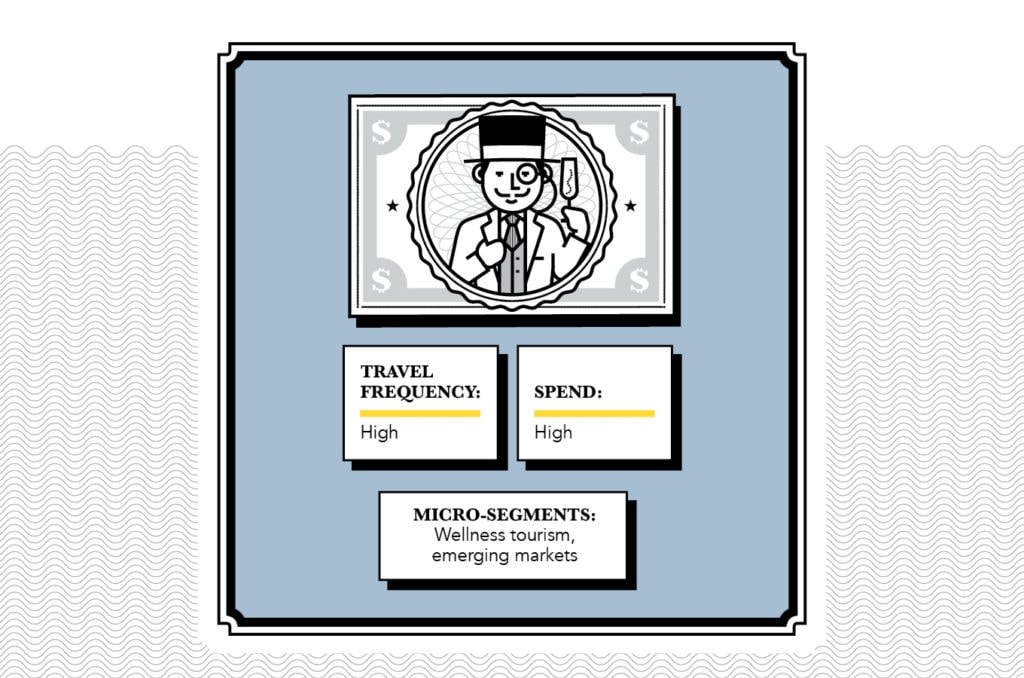
APEX Insight: While it’s undeniably best to know thy customer as intimately as possible, buyer personas are a good place to start. In this multipart feature, meet the budget setters, family-first flyers, high lifers, business travelers and big spenders.
As the gap between flying first class and flying private continues to close, the commercial airline industry’s most lucrative customers may also become the most elusive. Etihad Airways has cornered the market on first-class luxury with The Residence, but competition from Singapore Airlines and the private market means even the most luxurious airlines must continue to up the ante.
Traditional accoutrements lose their luster over time for luxury travelers who are well-traveled and technologically savvy, and crave innovation. According to the Affluence Collaborative, 34 percent of affluent travelers expect products and services to be tailored to their needs and desires; 32 percent believe that brands they engage with should be innovators; and 32 percent expect surprise, delight and once-in-a-lifetime experiences.
Wellness tourism is predicted to grow 37.5% to $808 billion by 2020.
A rise in original, on-demand luxury services has emerged to cater to these expectations. Last year, Delta Air Lines partnered with helicopter company Blade to provide first-class customers with on-demand transfers from John F. Kennedy International Airport to Manhattan in less than 10 minutes. To appeal to higher-end clientele, food delivery service Deliveroo partnered with Veuve Clicquot to offer Champagne on demand – with a gift-wrap option – to customers in London, England.
34% of affluent travelers expect products and services to be tailored to their needs and desires.
Partnering with luxury brands is a key opportunity for travel retailers, especially as almost half of global spending on luxury goods comes from purchases made while traveling internationally. According to a study by Deloitte, this figure rises to 60 percent among travelers from emerging markets such as China, Russia and the United Arab Emirates, where there is typically less access to the same range of products and demands.
Micro-segments in the luxury travel market include global wellness tourism, which is predicted to grow 37.5 percent to $808 billion by 2020. Specialized luxury companies such as Black Tomato, which offers pop-up accommodations in remote locations like the Moroccan desert and Bolivian salt flats, or Travel Unwrapped, which creates itineraries for travelers based on their DNA, will continue to push the envelope on rarefied experiences.
“Know Thy Customer” was originally published in the 8.3 June/July issue of APEX Experience magazine.


